Mahindra investing more in EVs: India’s electric vehicle market is seeing more support coming from Mahindra & Mahindra, which just announced a $600 million investment in the technology. Electric versions of its current crossover SUVs will be scheduled in the 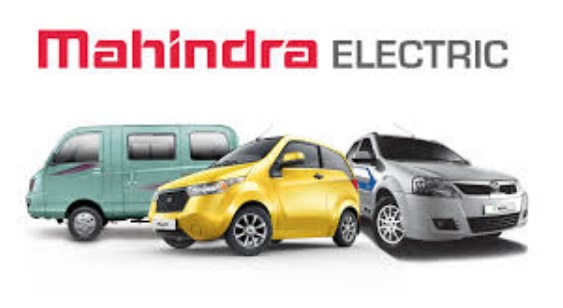 near future. Mahindra had just lost a bid for a 10,000 EV contract with the government’s Energy Efficiency Services Limited agency to its main Indian competitor, Tata Motors. Mahindra was awarded part of the contract after lowering prices to match Tata’s lowest bid; the company admitted it won’t make any profits off the sales of its eVerito electric sedan to the Indian agency. Tata was able to win the majority of the contract even though it has yet to manufacture any EVs. Mahindra has been in the segment for a few years with its e20 and e20 plus small electric hatchback models, the eVerito electric sedan, the eSupro electric van, and the e-Alfa Mini three-wheeler. The government wants to stop sales of fossil-fuel powered vehicles and is supporting electric vehicle development. The company’s subsidiary, Mahindra Electric, will operate as a separate entity supplying components to the Mahindra & Mahindra company, which will manufacture the EVs. The company currently operates a battery manufacturing plant and hopes to set up another larger facility soon.
near future. Mahindra had just lost a bid for a 10,000 EV contract with the government’s Energy Efficiency Services Limited agency to its main Indian competitor, Tata Motors. Mahindra was awarded part of the contract after lowering prices to match Tata’s lowest bid; the company admitted it won’t make any profits off the sales of its eVerito electric sedan to the Indian agency. Tata was able to win the majority of the contract even though it has yet to manufacture any EVs. Mahindra has been in the segment for a few years with its e20 and e20 plus small electric hatchback models, the eVerito electric sedan, the eSupro electric van, and the e-Alfa Mini three-wheeler. The government wants to stop sales of fossil-fuel powered vehicles and is supporting electric vehicle development. The company’s subsidiary, Mahindra Electric, will operate as a separate entity supplying components to the Mahindra & Mahindra company, which will manufacture the EVs. The company currently operates a battery manufacturing plant and hopes to set up another larger facility soon.
Paris saying goodbye to fossil-fuel cars: The city of Paris wants to speed up the elimination of gasoline- and diesel-powered cars by ending their sales starting in 2030. France had already set a target date of 2040 for banning sales of cars running on fossil fuels. The nation’s capital, which will host the summer Olympics in 2024 and not long ago hosted a worldwide agreement on climate change, had already been moving toward banning diesel cars by the time of the Olympics. City officials said it will probably not be a formal ban, but will be introducing a deadline to phase out internal-combustion engine vehicles. “This is about planning for the long term with a strategy that will reduce greenhouse gases,” said Christophe Najdovski, an official responsible for transport policy at the office of Mayor Anne Hidalgo. “Transport is one of the main greenhouse gas producers…. so we are planning an exit from combustion engine vehicles, or fossil-energy vehicles, by 2030.”
Tesla employees terminated at crucial time: Tesla has fired hundreds of employees, according to a recent report in the San Jose Mercury News, as pressure mounts to build more of the Model 3 sedans. Workers estimated between 400 and 700 employees have been 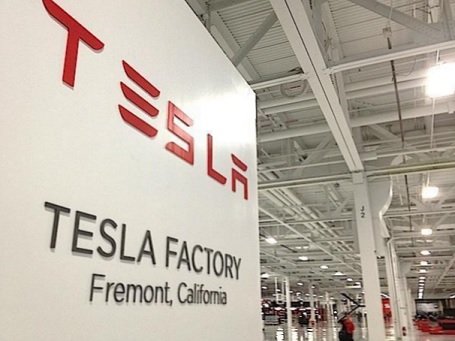 fired, including engineers, managers, and factory workers. Tesla wouldn’t say how many employees were let go, although the company expects employee turnover to be similar to last year’s attrition. They were not layoffs, the company said, but were dismissals based on a company-wide annual review. In interviews with the newspaper, former and current employees said there was little or no warning was given prior to the dismissals. “As with any company, especially one of over 33,000 employees, performance reviews also occasionally result in employee departures,” a Tesla spokesman said. “Tesla is continuing to grow and hire new employees around the world.”
fired, including engineers, managers, and factory workers. Tesla wouldn’t say how many employees were let go, although the company expects employee turnover to be similar to last year’s attrition. They were not layoffs, the company said, but were dismissals based on a company-wide annual review. In interviews with the newspaper, former and current employees said there was little or no warning was given prior to the dismissals. “As with any company, especially one of over 33,000 employees, performance reviews also occasionally result in employee departures,” a Tesla spokesman said. “Tesla is continuing to grow and hire new employees around the world.”

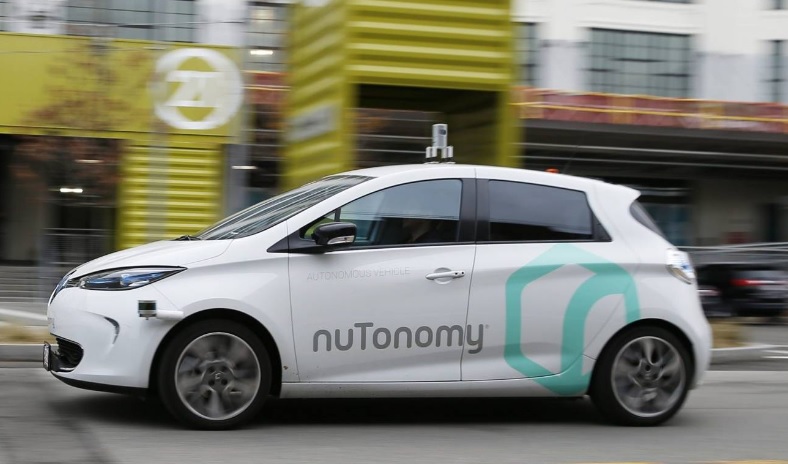 demonstration to begin in the next few months. The study will examine the passenger experience during self-driving rides as the electric cars travel through certain neighborhoods in Boston. Lyft has been forging other alliances in the autonomous vehicle front – including an upcoming project with shareholder General Motors and another one with Waymo. Ride-hailing giant Uber had taken the lead on that front starting last year with a Pittsburgh pilot project that included passengers getting rides; but Uber has distanced itself from Pittsburgh and is focusing on test rides in Arizona.
demonstration to begin in the next few months. The study will examine the passenger experience during self-driving rides as the electric cars travel through certain neighborhoods in Boston. Lyft has been forging other alliances in the autonomous vehicle front – including an upcoming project with shareholder General Motors and another one with Waymo. Ride-hailing giant Uber had taken the lead on that front starting last year with a Pittsburgh pilot project that included passengers getting rides; but Uber has distanced itself from Pittsburgh and is focusing on test rides in Arizona.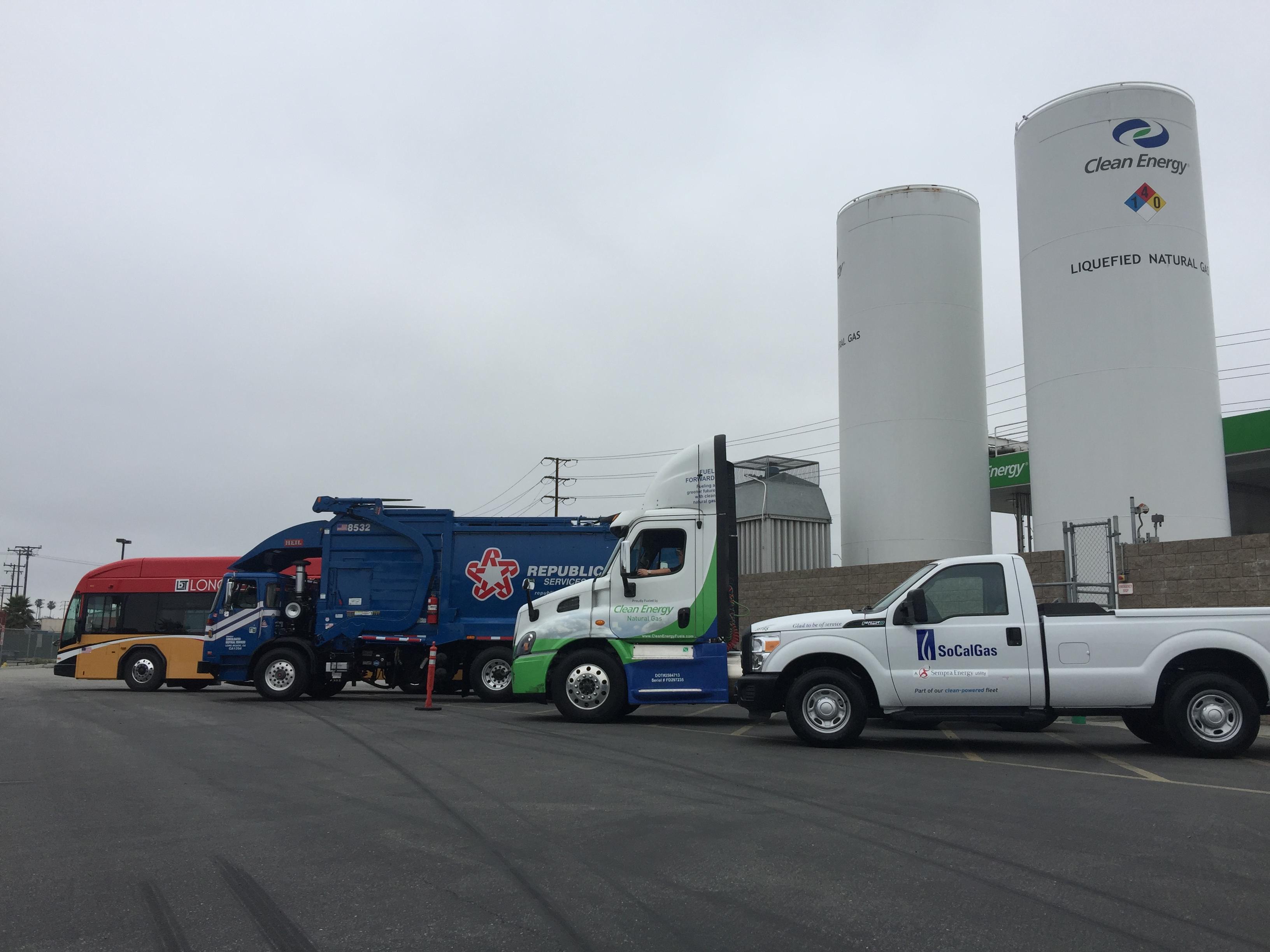 from California to Washington, D.C. The trip was kicked off by representatives from the California Natural Gas Vehicle Coalition (CNGVC), which is calling for the adoption of low nitrous oxide emissions heavy-duty truck technology powered by renewable natural gas in the Clean Air Action Plan of the San Pedro Bay Ports. That, called
from California to Washington, D.C. The trip was kicked off by representatives from the California Natural Gas Vehicle Coalition (CNGVC), which is calling for the adoption of low nitrous oxide emissions heavy-duty truck technology powered by renewable natural gas in the Clean Air Action Plan of the San Pedro Bay Ports. That, called 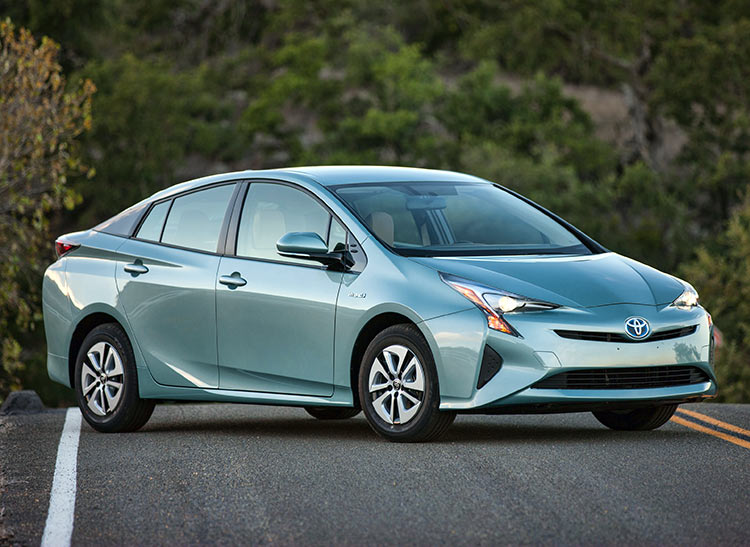 How plug-in sales performed: The Toyota Prius Prime led U.S. plug-in vehicle sales for the second month in a row, beating the Chevy Volt 1,908 units sold over 1,817, respectively. The Volt barely nudged out the Tesla Model X, which came in at an estimated 1,800 units sold last month,
How plug-in sales performed: The Toyota Prius Prime led U.S. plug-in vehicle sales for the second month in a row, beating the Chevy Volt 1,908 units sold over 1,817, respectively. The Volt barely nudged out the Tesla Model X, which came in at an estimated 1,800 units sold last month, 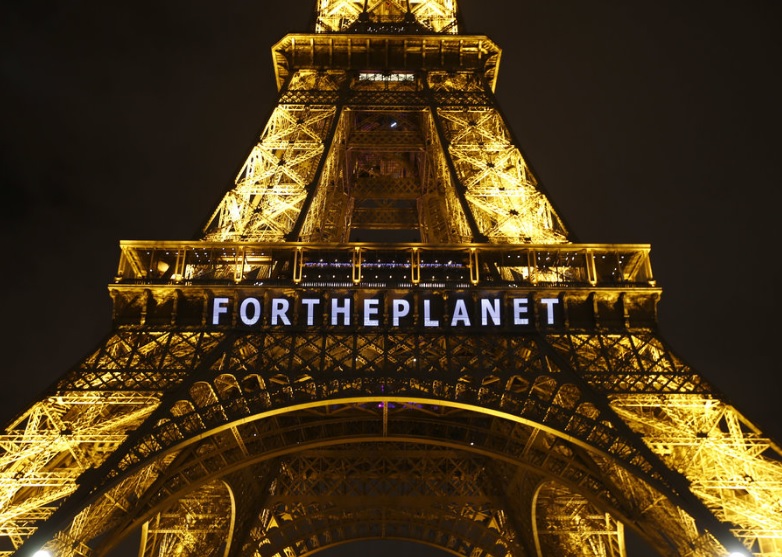 Reactions to Trump on Paris climate accord: Cities, states, and major corporations are staying committed to backing the Paris climate change agreement after President Donald Trump said yesterday that the U.S. will be leaving it. Tesla CEO Elon Musk is stepping down from Trump’s economic advisory panel over it, while Apple, Google, Twitter, Amazon, Facebook, Microsoft, IBM, and other companies have issued statements that climate change is an urgent threat that requires a global effort to combat. As of yesterday, an unnamed group that includes 30 mayors, three governors, more than 80 university presidents, and more than 100 businesses, has gone directly to the U.N. to back the Paris climate accord.
Reactions to Trump on Paris climate accord: Cities, states, and major corporations are staying committed to backing the Paris climate change agreement after President Donald Trump said yesterday that the U.S. will be leaving it. Tesla CEO Elon Musk is stepping down from Trump’s economic advisory panel over it, while Apple, Google, Twitter, Amazon, Facebook, Microsoft, IBM, and other companies have issued statements that climate change is an urgent threat that requires a global effort to combat. As of yesterday, an unnamed group that includes 30 mayors, three governors, more than 80 university presidents, and more than 100 businesses, has gone directly to the U.N. to back the Paris climate accord. 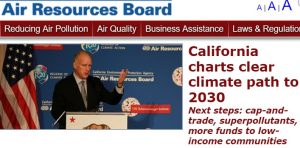 California has settled a legislative battle through simultaneous passage of Senate Bill 32 and Assembly Bill 197 – or at least has gained a temporary truce. SB 32 extends the state’s greenhouse gas mandate another 10 years and reduces greenhouse gases even more. AB 197 expands oversight of the California Air Resources Board with a priority set on cutting emissions from local oil refineries and manufacturers. The two bills were “double-joined,” which is legislative jargon meaning both bills have to be signed into law by Gov. Jerry Brown to take effect. That signature is expected to be happening soon. Brown had already filed an executive order with similar goals, but the legislation once signed turns it into law.
California has settled a legislative battle through simultaneous passage of Senate Bill 32 and Assembly Bill 197 – or at least has gained a temporary truce. SB 32 extends the state’s greenhouse gas mandate another 10 years and reduces greenhouse gases even more. AB 197 expands oversight of the California Air Resources Board with a priority set on cutting emissions from local oil refineries and manufacturers. The two bills were “double-joined,” which is legislative jargon meaning both bills have to be signed into law by Gov. Jerry Brown to take effect. That signature is expected to be happening soon. Brown had already filed an executive order with similar goals, but the legislation once signed turns it into law.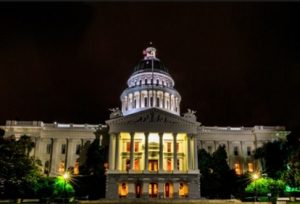 California climate change bill: Legislation extending California’s climate change law through 2030 narrowly passed in the Assembly,
California climate change bill: Legislation extending California’s climate change law through 2030 narrowly passed in the Assembly, 